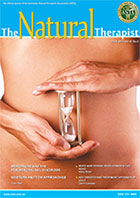News Categories
Occupational Physicians tackle the public health problems associated with being out of work
“Long-term worklessness,” Professor Sir Mansel Aylward said during his recent visit, “is one of the greatest known risks to Public Health. It has a health risk equivalent to that of smoking ten packs of cigarettes per day (1). After six months out of work, the suicide rate in young men is increased forty times. (2) For longer term worklessness, the general suicide rate is increased six times (3). Worklessness has a health risk and life expectancy reduction greater than many “killer diseases” (4). “Worklessness is actually riskier than most dangerous jobs, including construction and working in forestry or mining industries (5).
Sir Mansel, a prominent UK health reformer, was in Australia as a guest of the Australasian Faculty of Occupational and Environmental Medicine (AFOEM), under the auspices of the Royal Australasian College of Physicians, to launch AFOEM’s position statement, Realising the Health Benefits of Work. ![]()
Sickness absence, work disability and unnecessary exclusion from employment are still major issues, not only in Australia, but in industrialised countries around the world. The associated health, economic, social and personal costs are substantial; so too are the potential benefits of change.
Not all work is good for all people; and work must be safe. With these provisos, Realising the Health Benefits of Work asserts that work, in general, is an extremely effective means of improving the wellbeing of individuals, their families and their communities.
Being out of work for long periods is associated with:
- Increased rates of overall mortality, and specifically increased:
- mortality from cardiovascular disease; and
- suicide;
- Poorer general health;
- Poorer physical health, including increased rates of:
- cardiovascular disease;
- lung cancer; and
- susceptibility to respiratory infections;
- Poorer mental health and psychological wellbeing;
- Somatic complaints;
- Long‐standing illness;
- Disability; and
- Higher rates of medical consultation, medication consumption and hospital admission.
In general, the beneficial effects of work outweigh the risks—and the health benefits of work are greater than the harmful effects of long term unemployment or prolonged sickness absence.
The key recommendations of Realising the Health Benefits of Work are that:
- Stakeholders develop a consensus statement regarding the positive relationship between health and work and the negative consequences of long term work absence and unemployment;
- The education of treating practitioners incorporates training in workplace occupational health and vocational rehabilitation, and sickness certification practices, and that the medical community provides leadership on these issues;
- Health professionals responsibly promote the health benefits of work to their patients;
- Governments obtain and publicise accurate data about the level of work incapacity in Australia and New Zealand;
- Governments launch public health campaigns, directed at employers, workers, medical practitioners and the general public, to promote the message that “Work, in general, is good for health and wellbeing”; and
- Employers move beyond legislative requirements to embrace the spirit of inclusive employment practices, workplace safety, health and wellbeing, and best practice injury management.
Reference:
- Ross J. Where do real dangers lie? Smithsonian 1995;8:42‐53.
- Wessely S. Mental health issues. In: Holland‐Elliot K, ed. What about the workers? Proceedings of an RSM Symposium. London: Royal Society of Medicine Press; 2004:41‐6.
- Bartley M, Sacker A, Schoon I, Kelly M, Carmona C. Work, non‐work, job satisfaction and psychological health: evidence review: Health Development Agency; 2005.
- Aylward M, Waddell G. The Scientific and Conceptual Basis of Incapacity Benefits. In: The Stationary Office; 2005.
- Aylward M. No one written off: Reforming welfare to reward responsibility. Consultation Event DWP Welfare Reform Green Paper Cardiff; 2008.
For more information about Realising the Health Benefits of Work, and for additional
resources including audio interviews with Australasian Occupational Physicians and video
presentations by Professor Sir Mansel Aylward, and Professor Dame Carol Black, go to
http://www.afoem.racp.edu.au/page/media-and-news/realising-the-health-benefits-ofwork. ![]()

Use our search facility to find what you're looking for on the ANTA website.

The Natural Therapist


